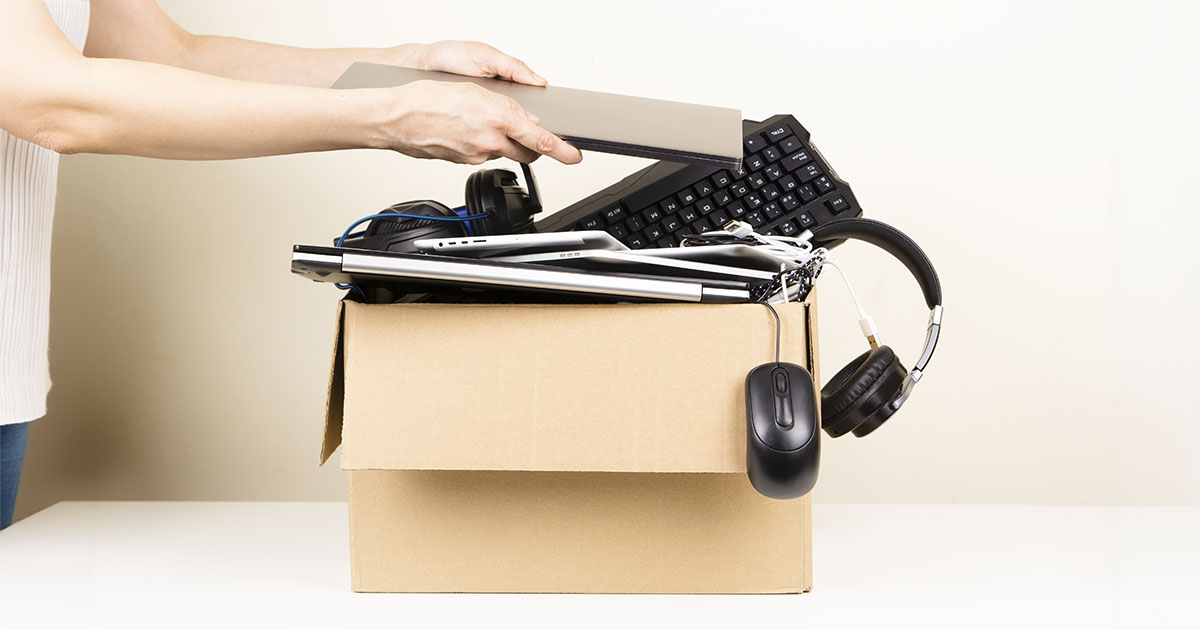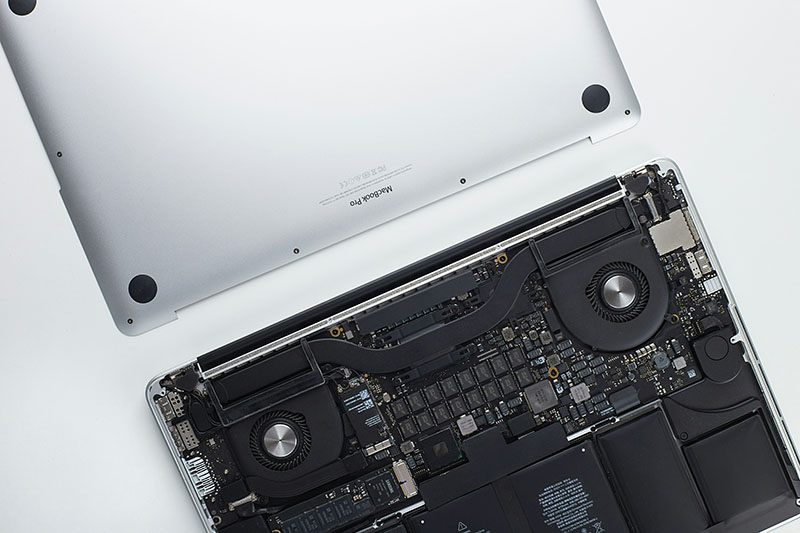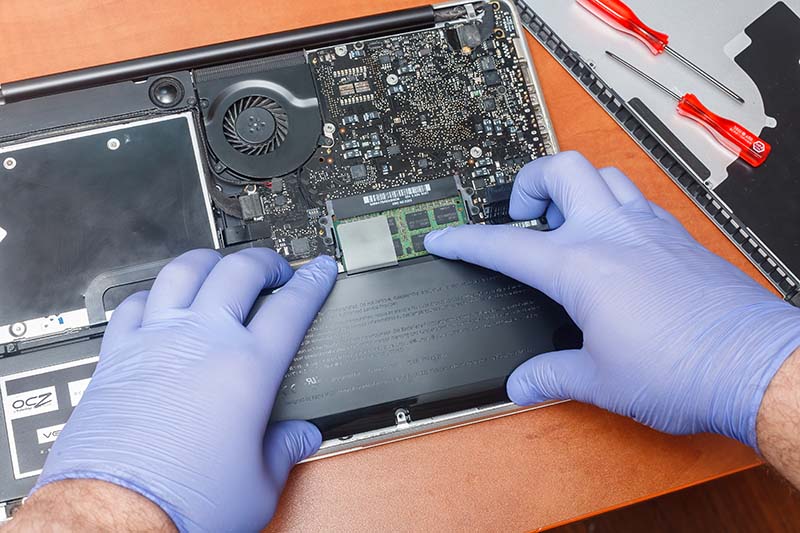How To Dispose of an Old Laptop

If you’ve been using tech for any length of time, the chances are you have a few old phones and laptops squirrelled away in a drawer somewhere. It just seems so wasteful to throw them away - and it is! Tech components are highly prioritised when it comes to recycling, since their valuable and non-renewable materials have plenty of reuse potential.
But how do you get your old laptop back into the cycle? Your council won’t pick it up, and there are very specific instructions as to what we can and can’t place in our recycling bins, which means you can’t dispose of components like the motherboard. Are you doomed to pay a repair shop so that you can refurb it and give it to a friend? Or is it going to have to sit in your drawer until you find another use for the parts?
Luckily, there are plenty of ways to safely dispose of a laptop in the UK. Rest assured that all of them are eco-friendly, and your old tech will never end up in the landfill.
What Kind of Waste Is a Laptop?

In the UK, a laptop counts as Waste Electrical and Electronic Equipment, or WEEE for short. That goes for batteries, chargers, hard drives and the motherboard - basically everything inside it! This means that there’s no need to take apart your computer to dispose of it properly: you simply need to take it to the right place that can dispose of WEEE waste.
Can You Put a Laptop in a Skip?
No, you cannot put a laptop in a skip. Electronic waste is not permitted in landfills due to the hazardous nature of the components. When old laptops are left outside to break down, the elements they’re made up of release chemicals into the surrounding environment, endangering wildlife and contaminating the soil. Despite safety measures taken to prevent landfills from affecting the surrounding areas, chemicals are too pervasive to be contained and should never be left to deteriorate. Even if your skip company aims to recycle waste rather than send it to landfill, electronics can contaminate the other items left in your skip and create hazards for employees and the environment.

How To Safely Dispose of a Laptop
There are plenty of ways to safely dispose of an old laptop that just won’t turn on. All of them will give your laptop (or its components!) a new lease of life.
1. Take It Back to the Retailer
When purchasing a new laptop, the retailer you bought from may offer a take-back scheme, where you can drop your old laptop off with them in exchange for the new one. This is a great way to make sure your laptop is recycled, as the retailer is under obligation to dispose of your devices sustainably.
2. Sell It Back
Tech rebuying schemes have popped up everywhere in recent years. It’s possible that you can get some money back for old devices if you take your laptop to a trade-in scheme and sell it along.
3. Hire a Man & Van
If you don’t want to go on a long drive just to drop your laptop off, you could hire a man with a van to do the job for you. This service takes any waste you may have off your hands, and you can take advantage to clear out the rest of your old appliances at the same time.
4. Take It to the Tip
The tip will take old laptops for recycling as long as they’re separated from non-WEEE waste. If you’re happy to take a drive out to the dump but aren’t sure what to do when you’re there, employees will be happy to direct you to the best place to drop off your tech. Check your local council website to find your nearest WEEE disposal recycling centre.
How To Dispose of a Laptop Battery
Batteries are incredibly hazardous waste. When left to decompose, chemicals can leach into the surrounding area and cause health risks to people and wildlife. Unlike AA batteries, however, a laptop battery can’t simply be taken to your local supermarket and left at the battery drop-off bin - you’ll have to do a little more legwork than that. Laptop batteries can be left at local battery banks, taken to the dump, or dropped off with take-back programmes operated by shops like Currys. Make sure to check that a shop will accept your battery before you make the trip!

Why Should Tech Be Recycled?
Electronics like phones and laptops are made from rare earth elements such as gold, silver, lithium, and cobalt. These resources are mined using heavy machinery that releases high levels of greenhouse gases into the atmosphere and are a limited resource. Recycling electronics reduces the need to mine new resources and can help to cut down on the environmental impact of large-scale mining operations.
Eco-friendly waste management is vital to the health of our planet. Reducing landfill waste and recycling your electronics takes you one step closer to carbon neutrality.

